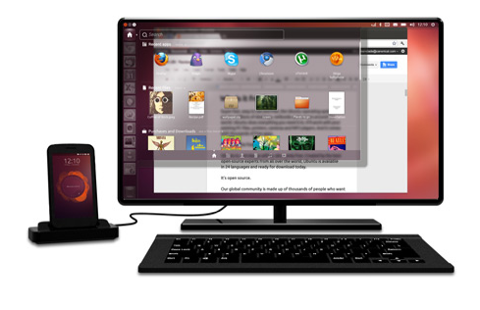Could Firefox OS and Ubuntu Change the Smartphone Game?
Mozilla decided to go big at this year’s Mobile World Congress in Barcelona, previewing the first commercial build of its Firefox OS open mobile ecosystem. A lightweight mobile OS based on HTML5, the Firefox OS (once known as “Boot to Gecko”) offers a user interface highly reminiscent of Google Android and Apple iOS, with grids of icons linked to applications. Firefox OS also offers the simplicity of developing on a single technology stack (HTML5/CSS/JavaScript/new WebAPIs) and distributing the resulting apps via a variety of channels. Its creators have argued that developing apps for Firefox OS will help “keep the Web open” and “make sure the power of the web is available to everyone—even on mobile devices.” As part of its big unveiling at Mobile World Congress, Mozilla claimed that some 17 operators around the world have committed to the Firefox OS initiative, including China Unicom, Sprint, MegaFon, and the Telecom Italia Group—however, many of these firms made public statements of support without indicating when they would actually add Firefox OS smartphones to their respective portfolios. In addition, Mozilla is also working with LG, ZTE and Alcatel to build the first generation of Firefox OS devices; Huawei is expected to follow in their footsteps later in 2013. But does Mozilla actually have a shot at altering the smartphone market? At least one analyst thinks so. “Firefox OS has achieved something that no device software platform has previously managed— translating an industry talking shop into a huge commitment from both carriers and hardware vendors at its commercial launch,” Tony Cripps, principal device analyst at Ovum, wrote in a Feb. 24 research note. “That is a huge achievement for what, in fairness, has looked like an underdog among the plethora of alternative software platforms currently vying to power the so-called ‘third ecosystem.’” That being said, Cripps felt “the real acid test for Firefox OS and its long-term prospects is the quality of the software itself and the user and developer experiences that it fosters.” At this early stage, it’s impossible to gauge whether the eventual retail devices will boast that necessary quality; and in the meantime, he found the Firefox OS demonstration handsets “slow and buggy,” and quite some distance from being market-ready. Meanwhile, Mozilla could face some competition from another up-and-coming mobile operating system: Ubuntu. In early January, Canonical (which works with the open-source community to support the open-source Ubuntu wordwide) announced it was working on a version of the open-source Ubuntu for smartphones. At the time, it issued system requirements for entry-level and higher-end devices, followed by a preview SDK and app design guides, then images and open-source code for a Touch Developer Preview. The Ubuntu mobile platform will allow HTML5 and native apps. Web apps can also run independently of the browser, with full access to system resources. The big question, though, is which manufacturers—if any—will jump onboard with a line of Ubuntu smartphones. Mozilla doesn’t seem to have that same sort of ambiguity about manufacturers, at least at this moment—provided, of course, that the partners who joined in its Mobile World Congress announcement actually carry through on their promises to support the platform. Nonetheless, both Mozilla and Canonical face something of an uphill battle if they want to make a significant dent in a market dominated in large part by Google Android and Apple iOS. Image: Mozilla

